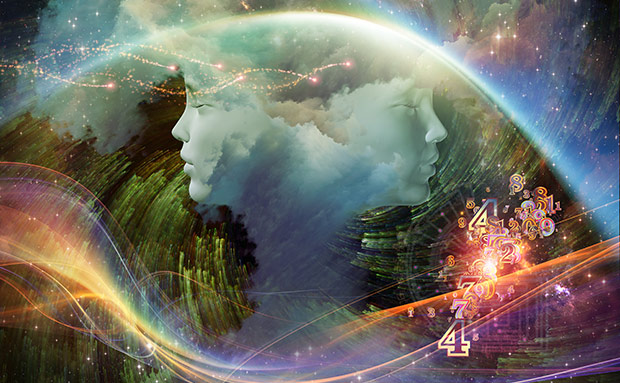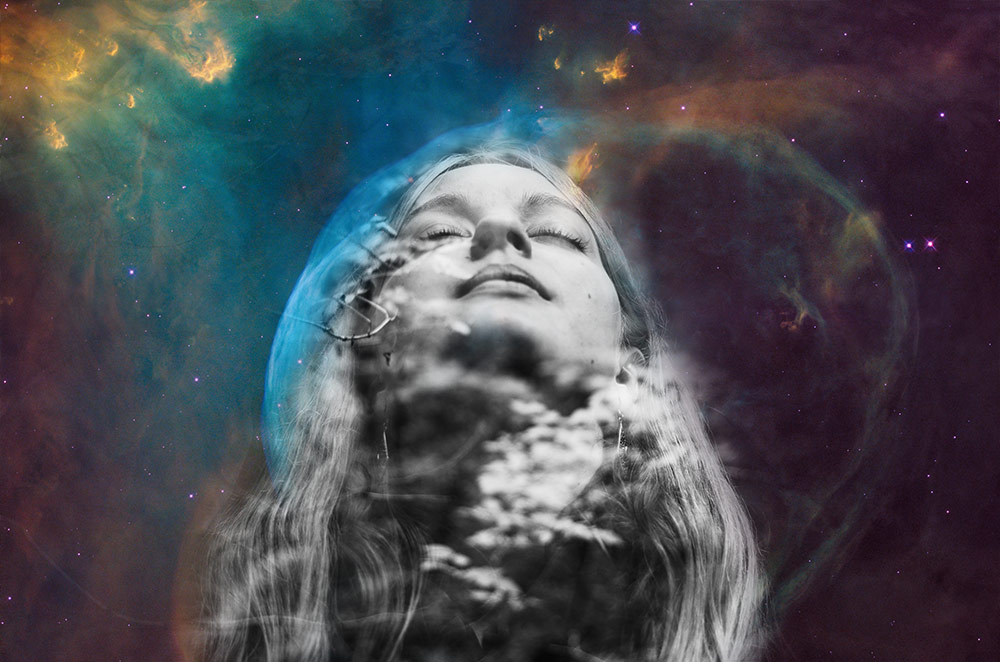
When we talk about the law of cause and effect, or karma, and its consequences, some "religious" people believe that there is an underlying injustice on the part of the divinity, which allows the formation of an evil that must then be taken for granted by the souls, on this earth or in another world, through a "cruel destiny", personal and collective.
In truth it happens that precisely because of the exploitation of this alleged cruelty all forms of extremist ideology are born, which aim to prove the "reality" of the dream of manifestation. These ideologies can be religious or atheistic, it does not matter, they can be turned to modify the quality of the dream or tout court to ignore the aspects turning their attention to a hypothetical "afterlife". So in one way or another it is taken for granted that what we live or "live" (in this world or the other) is the only possible reality ... and that is how karma, the destiny of man, is perpetuated and all that surrounds him.
The trouble with the concept of "God" is that we think of it as an alien entity, separate from us, for this reason, looking with the eyes of lay spirituality, I do not much appreciate the theistic religions. In turning round verse what we are, in the "path" of the return to our fullness, which we have never lost but only forgotten, we seem to touch the "stages".
Sometimes we like to stand in the concept of ethics but the concept of good and evil is a counter-altar to be skipped. Yin and Yang are aspects related to the event, as the positive and negative pole of the electric energy that moves the world.
Let's leave aside any moral explanation that would do nothing but create further confusion because it lies within the illusion, in the dual mirror of the mind, we leave aside any conceptualization, let's see if there is anything left?
Something remains for sure, it is the Consciousness that allows every visualization and perception, which is the "perception" itself.
In each of us it is the only real presence that illuminates the sense of the I (and of the you). Without such conscience nothing could exist. You are - I am - that conscience is enough.
... Consciousness is not what appears in the conscience, it is not - by intuition - feeling, thought, emotion, intuition, vision, but it is that light that makes every perception possible. Therefore even this explanation made of words can not qualify or indicate consciousness. And even this mine is a futile attempt to define the indefinable ... every definition is contained and can never be a container.
Pursuing the concept of Consciousness we can not follow a solid path, but we can at least establish what "not" is consciousness, we deny every construct, axiom, assumption, claim to describe and embody the conscience. And it is precisely in these terms that my opposition to religions and ideologies is configured. But there is no obligation to remain bogged down in a "creed" (the moment you understand the consequences). Only the one who insists on wanting to believe is co-participant of the good and evil of that belief.
Yet, is not it also a belief? And did not we say a little while ago that consciousness can never be "represented" by a thought, by an image?
So, why remain clinging to something that is mere illusion, a dual symbol of "good and evil"? And besides, is it not even said in the Bible that man was turned away from the earthly paradise for wanting to feel the fruit of good and evil? And it is not said, again, this time in the gospel, 'blessed are the poor in spirit because of them is the kingdom of heaven?' And in this case it is perhaps not the spirit of stubbornness and illusion to consider themselves separate that prevents access to that kingdom?
The only thing to do is abandon the separative arrogance and fearlessly return to our true home (which we never left) ...
Paolo D'Arpini

Testo Italiano
Quando si parla della legge di causa ed effetto, ovvero di karma e sue conseguenze, alcune persone “religiose” ritengono che ci sia una ingiustizia di fondo, da parte della divinità, che consente la formazione di un male che poi deve essere scontato dalle anime, su questa terra o in un altro mondo, attraverso un “destino crudele”, personale e collettivo.
In verità succede che proprio per la strumentalizzazione di questa presunta crudeltà nascono tutte quelle forme di ideologia estremistica che si prefiggono di comprovare la “realtà” del sogno. Queste ideologie possono essere religiose od atee, non ha importanza, possono essere rivolte a modificare la qualità del sogno oppure tout court ad ignorarne gli aspetti rivolgendo la propria attenzione al un ipotetico “aldilà”. Insomma in un modo o nell’altro si da per scontato che quello che viviamo o “vivremo” (in questo mondo o nell’altro) sia l’unica realtà possibile… ed è così che si perpetua il karma, il destino dell’uomo e di tutto ciò che lo circonda.
Il guaio del concetto di “Dio” è che noi lo riteniamo un ente alieno, separato da noi, per questo, guardando con gli occhi della spiritualità laica, io non apprezzo molto le religioni teiste. Nel girare in tondo versò ciò che siamo, nel “percorso” del ritorno alla nostra pienezza, che non abbiamo mai perso ma solo dimenticato, ci sembra di toccare delle “tappe”.
Talvolta ci piace sostare nel concetto dell’etica ma il concetto di bene e di male è un contro-altare da saltare a piè pari. Yin e Yang sono aspetti relativi alla manifestazione, come il polo positivo e negativo dell’energia elettrica che fa muovere il mondo.
Lasciamo da parte ogni spiegazione morale che non farebbe altro che creare ulteriore confusione poiché sta all’interno dell’illusione, nello specchio duale della mente, lasciamo da parte ogni concettualizzazione, vediamo se resta qualcosa?
Qualcosa resta di sicuro, è la Coscienza che consente ogni visualizzazione e percezione, che è la “percezione” stessa.
In ognuno di noi è la sola presenza reale che illumina il senso dell’io (e del tu). Senza detta coscienza non potrebbe esistere alcunché. Tu sei -io sono- quella coscienza e basta.
….La coscienza non è ciò che appare nella coscienza, non è -per intenderci- sensazione, pensiero, emozione, intuizione, visione ma è quella luce che rende possibile ogni percepire. Perciò anche questa spiegazione fatta di parole non può qualificare o indicare la coscienza. E perfino questo mio è un futile tentativo di definire l’indefinibile… ogni definizione è contenuto e mai può essere contenitore.
Inseguendo il concetto di Coscienza non possiamo seguire un tracciato solido, ma possiamo almeno stabilire ciò che “non” è coscienza, neghiamo ogni costrutto, assioma, assunzione, pretesa di descrivere ed incarnare la coscienza. Ed è proprio in questi termini che si configura la mia opposizione nei confronti delle religioni e delle ideologie. Ma non vi è alcun obbligo a restare impantanati in un “credo” (il momento che ne hai capito le conseguenze). Solo colui che insiste nel voler credere è compartecipe del bene e del male di quel credo.
Eppure, non è il credere anch’esso un pensiero? E non dicevamo poco fa che la coscienza non può mai essere “rappresentata” da un pensiero, da una immagine?
Quindi, perché restare avvinghiati a qualcosa che è mera illusione, un simbolo duale del “bene e male”? Ed inoltre, non è forse detto persino nella bibbia che l’uomo fu allontanato dal paradiso terrestre per aver voluto tastare il frutto del bene e del male? E non è detto, ancora, stavolta nel vangelo, ‘beati i poveri di spirito perché di essi è il regno dei cieli?’ Ed in questo caso non è forse lo spirito della caparbietà e dell’illusione di considerarsi separati che impedisce l’accesso a quel regno?
La sola cosa da fare è abbandonare l’arroganza separativa e senza paura tornare alla nostra vera casa (che non abbiamo mai lasciato)…
Paolo D’Arpini



